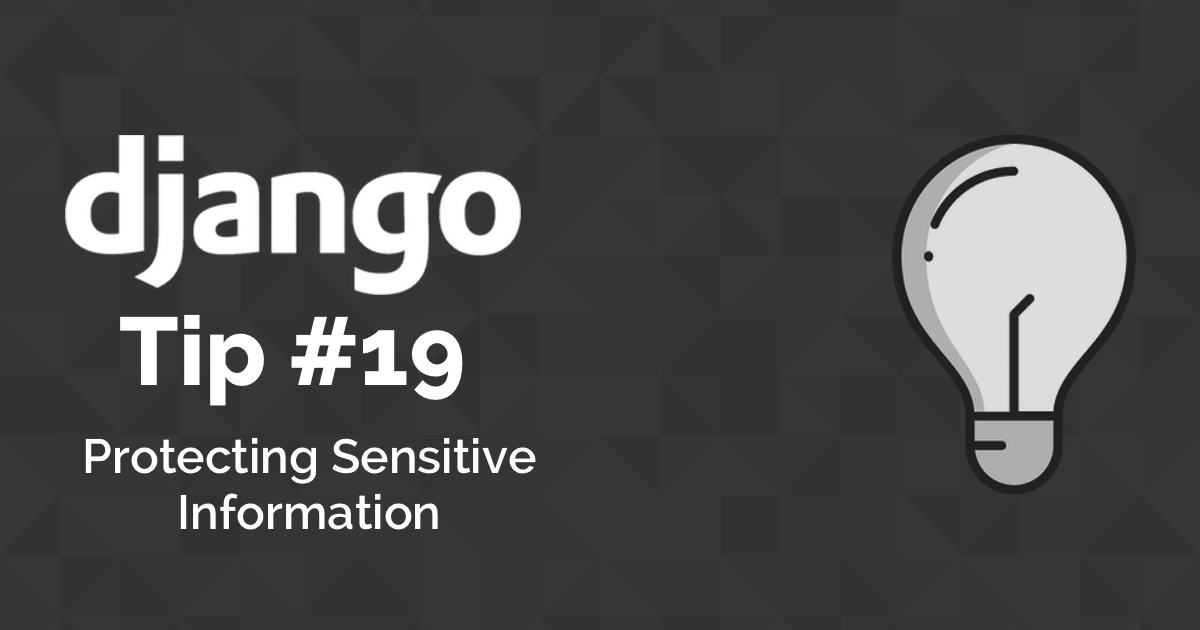The internet is a wild land. Security must be priority one when deploying a web application on the internet. The Django framework does an amazing job providing reliable and secure APIs. But none of that matters if we don’t use them properly.
Nothing new that we should never deploy a Django application with DEBUG=True, right?
One of the features of having DEBUG=True is dumping lots of metadata from your environment, including the whole
settings.py configurations, when a exception occurs.
Even though you will never be using DEBUG=True, you need extra care when naming the configurations in the
settings.py module. Make sure all sensitive variables use one of the keywords:
- API
- KEY
- PASS
- SECRET
- SIGNATURE
- TOKEN
This way, Django will not dump those variables that may contain sensitive information.
S3_BUCKET_KEY = 'xxxxxxxxxxxxxxxx'S3_BUCKET = 'xxxxxxxxxxxxxxxx'
CHAVE_DE_ACESSO = 'xxxxxxxxxxxxxxxx' # "access key" in portugueseEven when you are running your application with DEBUG=False, if it’s configured to send error reports via email,
there is a chance of the error report being exposed, specially if you are transmitting error reports unencrypted over
the internet.
PS: I mention this a lot here in the blog, but it’s never enough: Don’t commit sensitive information to public repositories. In other words, don’t add sensitive information directly to the settings.py file, instead use environment variable or use python-decouple. Learn more about how to separate configuration from code reading this article I published a while ago: Package of the Week: Python Decouple.
Speaking of filtering error reports, there are two view decorators that you should put in action:
sensitive_variables
If your code handle sensitive information in local variables inside a view function, explicitly mark them as sensitive to avoid showing them in error reports:
from django.views.decorators.debug import sensitive_variables
@sensitive_variables('user', 'pw', 'cc')
def process_info(user):
pw = user.pass_word
cc = user.credit_card_number
name = user.name
...Or if you want to hide all local variables inside a function:
@sensitive_variables()
def my_function():
...PS: When using multiple decorators make sure the @sensitive_variables() decorator is the first one.
sensitive_post_parameters
Similar to the previous example, but this one handle post parameters, as the name suggests:
from django.views.decorators.debug import sensitive_post_parameters
@sensitive_post_parameters('pass_word', 'credit_card_number')
def record_user_profile(request):
UserProfile.create(
user=request.user,
password=request.POST['pass_word'],
credit_card=request.POST['credit_card_number'],
name=request.POST['name'],
)
...In a similiar way, to hide all post parameters:
@sensitive_post_parameters()
def my_view(request):
...Further Reading
Read more about filtering sensitive information in the official Django docs.



 How to Add reCAPTCHA to a Django Site
How to Add reCAPTCHA to a Django Site
 How to Create a One Time Link
How to Create a One Time Link
 How to Extend Django User Model
How to Extend Django User Model
 How to Setup a SSL Certificate on Nginx for a Django Application
How to Setup a SSL Certificate on Nginx for a Django Application
 How to Deploy a Django Application to Digital Ocean
How to Deploy a Django Application to Digital Ocean